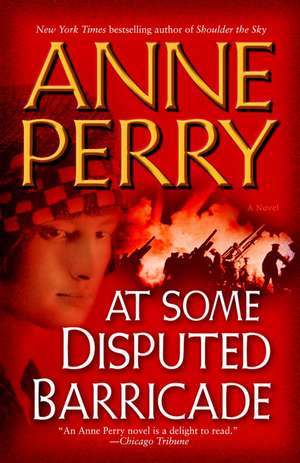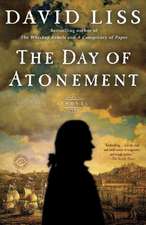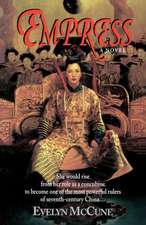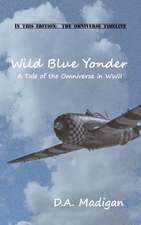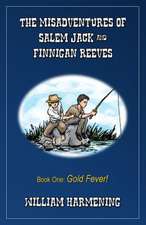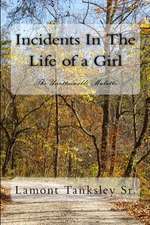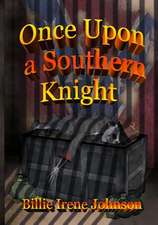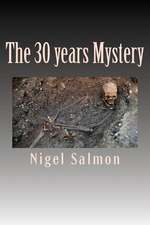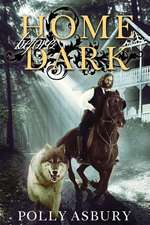At Some Disputed Barricade
Autor Anne Perryen Limba Engleză Paperback – 29 feb 2008
July 1917. Joseph Reavley, a chaplain, and his sister, Judith, an ambulance driver, are bone-weary as they approach the fourth year of the conflict; the peace of the English countryside seems a world away. On the Western Front, the Battle of Passchendaele has begun, and among the many fatalities from Joseph’s regiment is the trusted commanding officer, who is replaced by a young major whose pompous incompetence virtually guarantees that many good soldiers will die needlessly. But soon he, too, is dead–killed by his own men. Although Joseph would like to turn a blind eye, he knows that he must not. Judith, however, anguished at the prospect of courts-martial and executions for the twelve men arrested for the crime, has no such inhibitions and, risking of her own life, helps all but one of the prisoners to escape.
Back in England, Joseph and Judith’s brother, Matthew, continues his desperate pursuit to unmask the sinister figure known as the Peacemaker–an obsessed genius who has committed murder and treason in an attempt to stop Britain from winning the war. As Matthew trails the Peacemaker, Joseph tracks his comrades through Switzerland and into enemy territory. His search will lead to a reckoning pitting courage and honor against the blind machinery of military justice.
At Some Disputed Barricade is an Anne Perry masterpiece–brilliant, surprising, and unforgettable.
From the Hardcover edition.
Preț: 108.74 lei
Nou
Puncte Express: 163
Preț estimativ în valută:
20.82€ • 21.46$ • 17.47£
20.82€ • 21.46$ • 17.47£
Carte tipărită la comandă
Livrare economică 22 februarie-08 martie
Preluare comenzi: 021 569.72.76
Specificații
ISBN-13: 9780345456595
ISBN-10: 0345456599
Pagini: 306
Dimensiuni: 132 x 203 x 20 mm
Greutate: 0.3 kg
Editura: BALLANTINE BOOKS
ISBN-10: 0345456599
Pagini: 306
Dimensiuni: 132 x 203 x 20 mm
Greutate: 0.3 kg
Editura: BALLANTINE BOOKS
Notă biografică
Anne Perry is the bestselling author of the World War I novels No Graves As Yet, Shoulder the Sky, and Angels in the Gloom; as well as four holiday novels: A Christmas Journey, A Christmas Visitor, A Christmas Guest, and A Christmas Secret. She is also the creator of two acclaimed series set in Victorian England. Her William Monk novels include Dark Assassin, The Shifting Tide, and Death of a Stranger. The popular novels featuring Thomas and Charlotte Pitt include Long Spoon Lane, Seven Dials, and Southampton Row. Her short story “Heroes” won an Edgar Award. Anne Perry lives in Scotland. Visit her website at www.anneperry.net.
From the Hardcover edition.
From the Hardcover edition.
Extras
ONE
The sun was sinking low over the waste of no-man's-land when Barshey Gee staggered up the trench, his arms flying, his boots clattering on the duckboards. His face was ashen and streaked with mud and sweat.
"Chaplain! Snowy's gone!" he cried, bumping into the earthen wall and stopping in front of Joseph. "Oi think he's gone over the top!" His voice was hoarse with helplessness and despair.
That morning Snowy Nunn had seen his elder brother sawn in half by machine gun fire in yet another pointless attack. It was now late July 1917, and this mid-Cambridgeshire regiment had been bogged down on this same stretch of ruined land between Pyres and Passchendaele since the beginning, those far-off days of courage and hope when they had imagined it would all be over by Christmas.
Now mutilation and death were everyday occurrences. The earth stank of three years' worth of latrines, poison gas, and corpses. But it was still different to see the brother you had grown up with reduced to bleeding jelly in front of your eyes. At first Snowy had been too stunned to do anything, as if the sheer horror of it had paralyzed him.
"I think he's gone over," Barshey repeated. "He's lost it. He's gone to kill the whole German army himself. They'll just wipe him out." He gulped.
"We'll get him back," Joseph said with far more certainty than he felt. "He might have been taken back to the first aid post. Have you--"
"Oi looked," Barshey interrupted him. "And in the cookhouse, and Oi looked in all the dugouts and the holes big enough for anyone to crawl in. He's gone over the top, Captain Reavley."
Joseph's stomach clenched. It was pointless to cling to hope they both knew was futile. "You go north, I'll go south," he said briefly. "But be careful! Don't get yourself killed for nothing!"
Barshey gave a bark of laughter so harsh it was almost a sob, and turned away. Joseph started in the opposite direction, south and west toward the place where a man could most easily go over the parapet and find the shelter of what was left of the trees--shell-torn, blackened, and mostly leafless, even now in full summer.
" 'Evenin', Chaplain," the sentry said quietly from his position on the fire step, peering forward into the gathering gloom. The German guns were rumbling sullenly, starting the night's barrage, flashes from their muzzles red. The British answered. There were Canadian and Australian regiments up in this section, too.
"Evening," Joseph answered. "Seen Snowy Nunn?" He had too little time left to afford discretion. Grief had shattered all sense of self-preservation. Of course Snowy had seen men killed before: burned, drowned, gassed, frozen, or blown to pieces, some caught on the wire and riddled with bullets. But when it was your own brother, there was something that tore you in an inner way that nothing else could reach. Tucky had been his childhood friend and protector, the companion in his first adventures, the one who first told him daring jokes, the one who had stood up for him in the school playground. It was as if half his own life had been destroyed obscenely right in front of him.
Joseph had seen Snowy's face, and known that when the first numbing shock wore off his emotion would turn to rage. He had just expected it to take longer.
"Have you seen him?" he asked the sentry again, this time more sharply.
"Don't know, Captain Reavley," the sentry answered. "Oi bin watching forward."
"He hasn't done anything," Joseph said, clenching his teeth to keep control of the helplessness rising inside him. "I want to get to him before he does!" He knew what the man was protecting. Joseph was an officer and a priest, tied to the command by both rank and conviction. There were whispers that men in the French army had already mutinied, said they would hold their positions but would not launch any attack. They had demanded improved rations and whatever humanity of treatment was possible in this universal misery. Thousands had been charged, and over four hundred had been sentenced to death, but so far apparently very few had actually faced the firing squad.
In the British Army the losses had been equally appalling. Men were exhausted and morale was low, but as yet no mutiny. Now there was talk of another push forward against the German lines and there was no heart left for it. Everyone had seen too many friends dead or crippled to gain a few yards of clay, and nothing had changed, except the numbers of the dead. The sentry's sympathies were with the men, and he was afraid.
"Please!" Joseph said urgently. "His brother was killed and he's in a bad way. I need to find him."
"And tell him what?" the sentry said raspingly, turning at last to face Joseph. "That there's a God up there who loves us and it'll turn out all right in the end?" His voice was raw with misery.
Joseph had not expressed that sentiment in a long time. Certainly such words were no help. Young men of nineteen or twenty who had been sent out to die, in a hell those at home could not even imagine, did not want to be told by a priest almost twice their age, who had at least had a chance at life, that God loved them in spite of every evidence to the contrary.
"I just want to prevent him from doing something stupid before he's had time to think," he said aloud. "I know his mother. I'd like to get one son back to her."
The sentry did not answer. He turned back to face over the parapet again. The sky was fading into a soft, bright peach trailed across by a wisp of scarlet cloud, still burning in the sun. There were a few naked trees in Railway Wood to the west, silhouetted black against the hot color, more ahead over the German lines beyond Glencorse and Polygon Woods. That was the direction toward which they'd mount the attack.
"Oi don't know," the sentry said at last. "But you could troy Zoave Wood." He jerked his hand to the right. "There's one or two decent places over there you could sit boi yourself. If that was what you wanted."
"Thank you." Joseph moved on quickly. Ahead of him he heard rats' feet scraping along the boards. The trenches were full of them, millions scavenging among the unburied dead. Men went out at night, Joseph often among them, and brought back the bodies, the living first, then what dead they could.
He passed the dugouts off to the side where stretchers and extra first aid supplies were kept, although each man was supposed to carry with him at least the basics to stanch a wound. It was getting dark and occasionally star shells burst above, briefly lighting the mud with a yellow-white glare, leaving men in momentary blindness afterward.
He still did not know what he was going to say to Snowy when he found him. Perhaps there was nothing more he could do than be there, sit with him in the long agonized silence. Snowy probably would not ask him the impossible questions. He had ceased to imagine there were any answers, and certainly none that Joseph knew. Snowy was over twenty, a veteran. Most of these boys coming out now had been taken from the schoolroom. When they were broken and dying, it was their mothers they called for, not God. Out here what was there to say to God? Joseph was not sure how many people believed in such a being anymore, or thought that if He was there, then He was just as helpless as everyone else.
The trench walls were deep here, the sides firmly riveted with wood.
He passed a couple of men squatting on their heels over a Dixie can of tea.
"Seen Snowy Nunn?" he asked, stopping beside them.
One lifted a pale face, smeared with mud, a long scar across his cheek. Joseph recognized him as Nobby. "Sorry, Cap'n, not lately, poor sod. Tucky were a good chap." There was no horror in his voice and his eyes stared beyond Joseph into a distance no one else could see.
"Thanks, Nobby," Joseph acknowledged, and moved on quickly. There were more sentries, a group of men telling tall stories to each other and laughing. Somebody was singing a music hall song with risque alterations to the words.
Joseph passed an officers' dugout, its entrance down steep steps. It was narrow as a tomb, but at least it was safe from sniper fire, and in the winter as warm as anyone could be in the frozen earth. He emerged from the confining walls of the trench into Zoave Wood. Most of the trees here were blasted or burned, but a few still had leaves. Beneath them the earth that normally was covered with undergrowth was trampled flat. The front line passed right through what was left of the wood.
He stood close to the trunk of the nearest tree and felt its rough bark against his back. If Snowy was here in these few acres behind the line it was just a matter of walking quietly, crisscrossing it like a gamekeeper looking for a poacher. Except that Snowy would probably be motionless in his grief, alone, growing cold even in this summer night because he was exhausted not in body but in heart. Perhaps he was consumed by that terrible, inexplicable guilt that survivors feel when for no reason at all they live on after those they loved have died.
Joseph started to walk, placing his feet softly on the bare ground. The wind stirred in the few remaining leaves, and shadows flickered, but he could hear nothing else above the noise of the guns. It was a warm night and the stench of the dead mixed with that of the latrines was thick in his throat, although these days he hardly noticed it. It was there all the time. You had to get right away from the lines, into one of the towns, perhaps in an estaminet, and smell cheese and wine and sweat before you lost it. Fortunately there was opportunity for this in places like Poperinghe or Armentieres and the small villages within a few miles.
Something moved to his right. It must be a soldier. There were no animals left, and even birds would not come this close to the lines. He turned toward the figure and walked zigzag from tree to tree. It was a while before he saw the movement again. It was not Snowy. The man was too tall.
The sky was completely dark now, the only light emanating from gun flashes and star flares. They made the trees black and filled the spaces between with jagged shadows as the rising wind swayed them to and fro. The summer heat could not last. Soon there would be rain, maybe a thunderstorm. It would clear the air.
He almost stumbled on them: five men sitting in a slight hollow, facing each other and talking, all of them dragging on cigarettes, the brief glow marking their positions and momentarily showing a cheek or the outline of a nose and brow. At first he could not hear the words, but at least one of the low, emotion-charged voices was familiar: It was Edgar Morel, one of his own students from Cambridge days.
Joseph dropped down to his hands and knees to be less obvious, and crept forward soundlessly, keeping his movement steady so he didn't catch anyone's eye.
Morel drew on his cigarette again. The burning tobacco glowed red, showing his gaunt features and wide, dark eyes. He was speaking urgently and the anger in him was clear in the rigid lines of his shoulders and chest as he leaned forward. His captain's insignia gleamed for a moment, then the darkness returned and the smoke he blew out was almost invisible. Joseph could smell it more than see it.
"They're going to send us over the top again, toward Passchendaele," Morel said harshly. "Thousands of us--not just us but Canadians, French, and Aussies, too. It's all just as bloody hopeless as it's always been. Jerry'll pick us off by the hundreds. It'll wipe us out. There's almost nothing left of us already."
"They're all barking mad!" Geddes said bitterly. He was a lance corporal with a long, thin face. The hand holding his cigarette was shaking. It could have been nerves, or shell shock.
Somebody else lit another and passed it across. The man who took it thanked him and took a long drag, then coughed. Joseph stiffened, his stomach knotting. It was Snowy Nunn. He could not see the white blond hair under his helmet, but he recognized his voice.
"They've bin saying all summer that we're going," the fourth man said wearily. "Can't make up their bloody minds. But when did they ever know their arse from their elbow anyhow?"
"The twenty-first of March, loike clockwork," Snowy said quietly. "First day of spring, an' over we go. They must think Jerry doesn't have a calendar or something." He took in a deep, rasping breath, his eyes filled with tears. "What for? What's the point?" He stopped, his voice choking off.
The man next to him reached out and put a hand on his shoulder.
"The question is, what are we going to do about it?" Morel looked from one to the other of them, his expression unreadable in the darkness, except for his mouth, an angry line in the glow of his cigarette. "Are you willing to be driven over the top to get slaughtered for no bloody reason? The French aren't, God help them."
There was a bark of laughter. "You reckon it's better to be tried and shot by your own? You're just as dead, and your family's got to live with the shame."
"It's show," Morel argued. "The French aren't going to shoot more than a dozen or two. But that isn't the point." He leaned forward, his body no more than a deeper shadow in the gloom. He spoke with intense earnestness. "Jerry's a hell of a lot better prepared for us than we thought."
"How d'you know that?" Geddes demanded. "What makes you God Almighty? Not that I've got any time for generals, or anybody else who thinks he's better than his neighbor 'cos he was born with a silver spoon in his mouth."
"Because I was questioning a prisoner a couple of days ago," Morel answered sharply. "The Germans know we're coming."
"I forgot you speak bloody kraut," Geddes said angrily. "Is that what you went to Cambridge for?"
A voice in the darkness told him to shut up.
"The point is, I do," Morel answered.
"The point is, did you tell anyone?" one of the others asked. "Like Penhaligon, for example."
"Of course I did!" Morel spat. "And he passed it on up. But they don't want to know. Most of us are going to die anyway," he went on urgently. "I'd rather go for a cause I believe in than be sent over the top because some damn fool general can't think of anything except the same futile slaughter, year after year, no matter what the intelligence tells him. We're no closer to winning than we were in 1914. I'm not sure that the Germans are our real enemies. Are you? You've fought opposite them for the last three years, captured some of them. I'm not the only one who's talked to them. Our sappers have been in tunnels so close under their lines they can hear them talking at night. What about? Killing us? No, they aren't! Ask any of the sappers, they'll tell you they talk about their homes, their families, what they want to do after the war, if they live through it. They talk about friends, who's been killed or wounded, how hungry they are, how cold, how damn wet! They make rotten jokes just like ours. And they sing, mostly sad songs."
From the Hardcover edition.
The sun was sinking low over the waste of no-man's-land when Barshey Gee staggered up the trench, his arms flying, his boots clattering on the duckboards. His face was ashen and streaked with mud and sweat.
"Chaplain! Snowy's gone!" he cried, bumping into the earthen wall and stopping in front of Joseph. "Oi think he's gone over the top!" His voice was hoarse with helplessness and despair.
That morning Snowy Nunn had seen his elder brother sawn in half by machine gun fire in yet another pointless attack. It was now late July 1917, and this mid-Cambridgeshire regiment had been bogged down on this same stretch of ruined land between Pyres and Passchendaele since the beginning, those far-off days of courage and hope when they had imagined it would all be over by Christmas.
Now mutilation and death were everyday occurrences. The earth stank of three years' worth of latrines, poison gas, and corpses. But it was still different to see the brother you had grown up with reduced to bleeding jelly in front of your eyes. At first Snowy had been too stunned to do anything, as if the sheer horror of it had paralyzed him.
"I think he's gone over," Barshey repeated. "He's lost it. He's gone to kill the whole German army himself. They'll just wipe him out." He gulped.
"We'll get him back," Joseph said with far more certainty than he felt. "He might have been taken back to the first aid post. Have you--"
"Oi looked," Barshey interrupted him. "And in the cookhouse, and Oi looked in all the dugouts and the holes big enough for anyone to crawl in. He's gone over the top, Captain Reavley."
Joseph's stomach clenched. It was pointless to cling to hope they both knew was futile. "You go north, I'll go south," he said briefly. "But be careful! Don't get yourself killed for nothing!"
Barshey gave a bark of laughter so harsh it was almost a sob, and turned away. Joseph started in the opposite direction, south and west toward the place where a man could most easily go over the parapet and find the shelter of what was left of the trees--shell-torn, blackened, and mostly leafless, even now in full summer.
" 'Evenin', Chaplain," the sentry said quietly from his position on the fire step, peering forward into the gathering gloom. The German guns were rumbling sullenly, starting the night's barrage, flashes from their muzzles red. The British answered. There were Canadian and Australian regiments up in this section, too.
"Evening," Joseph answered. "Seen Snowy Nunn?" He had too little time left to afford discretion. Grief had shattered all sense of self-preservation. Of course Snowy had seen men killed before: burned, drowned, gassed, frozen, or blown to pieces, some caught on the wire and riddled with bullets. But when it was your own brother, there was something that tore you in an inner way that nothing else could reach. Tucky had been his childhood friend and protector, the companion in his first adventures, the one who first told him daring jokes, the one who had stood up for him in the school playground. It was as if half his own life had been destroyed obscenely right in front of him.
Joseph had seen Snowy's face, and known that when the first numbing shock wore off his emotion would turn to rage. He had just expected it to take longer.
"Have you seen him?" he asked the sentry again, this time more sharply.
"Don't know, Captain Reavley," the sentry answered. "Oi bin watching forward."
"He hasn't done anything," Joseph said, clenching his teeth to keep control of the helplessness rising inside him. "I want to get to him before he does!" He knew what the man was protecting. Joseph was an officer and a priest, tied to the command by both rank and conviction. There were whispers that men in the French army had already mutinied, said they would hold their positions but would not launch any attack. They had demanded improved rations and whatever humanity of treatment was possible in this universal misery. Thousands had been charged, and over four hundred had been sentenced to death, but so far apparently very few had actually faced the firing squad.
In the British Army the losses had been equally appalling. Men were exhausted and morale was low, but as yet no mutiny. Now there was talk of another push forward against the German lines and there was no heart left for it. Everyone had seen too many friends dead or crippled to gain a few yards of clay, and nothing had changed, except the numbers of the dead. The sentry's sympathies were with the men, and he was afraid.
"Please!" Joseph said urgently. "His brother was killed and he's in a bad way. I need to find him."
"And tell him what?" the sentry said raspingly, turning at last to face Joseph. "That there's a God up there who loves us and it'll turn out all right in the end?" His voice was raw with misery.
Joseph had not expressed that sentiment in a long time. Certainly such words were no help. Young men of nineteen or twenty who had been sent out to die, in a hell those at home could not even imagine, did not want to be told by a priest almost twice their age, who had at least had a chance at life, that God loved them in spite of every evidence to the contrary.
"I just want to prevent him from doing something stupid before he's had time to think," he said aloud. "I know his mother. I'd like to get one son back to her."
The sentry did not answer. He turned back to face over the parapet again. The sky was fading into a soft, bright peach trailed across by a wisp of scarlet cloud, still burning in the sun. There were a few naked trees in Railway Wood to the west, silhouetted black against the hot color, more ahead over the German lines beyond Glencorse and Polygon Woods. That was the direction toward which they'd mount the attack.
"Oi don't know," the sentry said at last. "But you could troy Zoave Wood." He jerked his hand to the right. "There's one or two decent places over there you could sit boi yourself. If that was what you wanted."
"Thank you." Joseph moved on quickly. Ahead of him he heard rats' feet scraping along the boards. The trenches were full of them, millions scavenging among the unburied dead. Men went out at night, Joseph often among them, and brought back the bodies, the living first, then what dead they could.
He passed the dugouts off to the side where stretchers and extra first aid supplies were kept, although each man was supposed to carry with him at least the basics to stanch a wound. It was getting dark and occasionally star shells burst above, briefly lighting the mud with a yellow-white glare, leaving men in momentary blindness afterward.
He still did not know what he was going to say to Snowy when he found him. Perhaps there was nothing more he could do than be there, sit with him in the long agonized silence. Snowy probably would not ask him the impossible questions. He had ceased to imagine there were any answers, and certainly none that Joseph knew. Snowy was over twenty, a veteran. Most of these boys coming out now had been taken from the schoolroom. When they were broken and dying, it was their mothers they called for, not God. Out here what was there to say to God? Joseph was not sure how many people believed in such a being anymore, or thought that if He was there, then He was just as helpless as everyone else.
The trench walls were deep here, the sides firmly riveted with wood.
He passed a couple of men squatting on their heels over a Dixie can of tea.
"Seen Snowy Nunn?" he asked, stopping beside them.
One lifted a pale face, smeared with mud, a long scar across his cheek. Joseph recognized him as Nobby. "Sorry, Cap'n, not lately, poor sod. Tucky were a good chap." There was no horror in his voice and his eyes stared beyond Joseph into a distance no one else could see.
"Thanks, Nobby," Joseph acknowledged, and moved on quickly. There were more sentries, a group of men telling tall stories to each other and laughing. Somebody was singing a music hall song with risque alterations to the words.
Joseph passed an officers' dugout, its entrance down steep steps. It was narrow as a tomb, but at least it was safe from sniper fire, and in the winter as warm as anyone could be in the frozen earth. He emerged from the confining walls of the trench into Zoave Wood. Most of the trees here were blasted or burned, but a few still had leaves. Beneath them the earth that normally was covered with undergrowth was trampled flat. The front line passed right through what was left of the wood.
He stood close to the trunk of the nearest tree and felt its rough bark against his back. If Snowy was here in these few acres behind the line it was just a matter of walking quietly, crisscrossing it like a gamekeeper looking for a poacher. Except that Snowy would probably be motionless in his grief, alone, growing cold even in this summer night because he was exhausted not in body but in heart. Perhaps he was consumed by that terrible, inexplicable guilt that survivors feel when for no reason at all they live on after those they loved have died.
Joseph started to walk, placing his feet softly on the bare ground. The wind stirred in the few remaining leaves, and shadows flickered, but he could hear nothing else above the noise of the guns. It was a warm night and the stench of the dead mixed with that of the latrines was thick in his throat, although these days he hardly noticed it. It was there all the time. You had to get right away from the lines, into one of the towns, perhaps in an estaminet, and smell cheese and wine and sweat before you lost it. Fortunately there was opportunity for this in places like Poperinghe or Armentieres and the small villages within a few miles.
Something moved to his right. It must be a soldier. There were no animals left, and even birds would not come this close to the lines. He turned toward the figure and walked zigzag from tree to tree. It was a while before he saw the movement again. It was not Snowy. The man was too tall.
The sky was completely dark now, the only light emanating from gun flashes and star flares. They made the trees black and filled the spaces between with jagged shadows as the rising wind swayed them to and fro. The summer heat could not last. Soon there would be rain, maybe a thunderstorm. It would clear the air.
He almost stumbled on them: five men sitting in a slight hollow, facing each other and talking, all of them dragging on cigarettes, the brief glow marking their positions and momentarily showing a cheek or the outline of a nose and brow. At first he could not hear the words, but at least one of the low, emotion-charged voices was familiar: It was Edgar Morel, one of his own students from Cambridge days.
Joseph dropped down to his hands and knees to be less obvious, and crept forward soundlessly, keeping his movement steady so he didn't catch anyone's eye.
Morel drew on his cigarette again. The burning tobacco glowed red, showing his gaunt features and wide, dark eyes. He was speaking urgently and the anger in him was clear in the rigid lines of his shoulders and chest as he leaned forward. His captain's insignia gleamed for a moment, then the darkness returned and the smoke he blew out was almost invisible. Joseph could smell it more than see it.
"They're going to send us over the top again, toward Passchendaele," Morel said harshly. "Thousands of us--not just us but Canadians, French, and Aussies, too. It's all just as bloody hopeless as it's always been. Jerry'll pick us off by the hundreds. It'll wipe us out. There's almost nothing left of us already."
"They're all barking mad!" Geddes said bitterly. He was a lance corporal with a long, thin face. The hand holding his cigarette was shaking. It could have been nerves, or shell shock.
Somebody else lit another and passed it across. The man who took it thanked him and took a long drag, then coughed. Joseph stiffened, his stomach knotting. It was Snowy Nunn. He could not see the white blond hair under his helmet, but he recognized his voice.
"They've bin saying all summer that we're going," the fourth man said wearily. "Can't make up their bloody minds. But when did they ever know their arse from their elbow anyhow?"
"The twenty-first of March, loike clockwork," Snowy said quietly. "First day of spring, an' over we go. They must think Jerry doesn't have a calendar or something." He took in a deep, rasping breath, his eyes filled with tears. "What for? What's the point?" He stopped, his voice choking off.
The man next to him reached out and put a hand on his shoulder.
"The question is, what are we going to do about it?" Morel looked from one to the other of them, his expression unreadable in the darkness, except for his mouth, an angry line in the glow of his cigarette. "Are you willing to be driven over the top to get slaughtered for no bloody reason? The French aren't, God help them."
There was a bark of laughter. "You reckon it's better to be tried and shot by your own? You're just as dead, and your family's got to live with the shame."
"It's show," Morel argued. "The French aren't going to shoot more than a dozen or two. But that isn't the point." He leaned forward, his body no more than a deeper shadow in the gloom. He spoke with intense earnestness. "Jerry's a hell of a lot better prepared for us than we thought."
"How d'you know that?" Geddes demanded. "What makes you God Almighty? Not that I've got any time for generals, or anybody else who thinks he's better than his neighbor 'cos he was born with a silver spoon in his mouth."
"Because I was questioning a prisoner a couple of days ago," Morel answered sharply. "The Germans know we're coming."
"I forgot you speak bloody kraut," Geddes said angrily. "Is that what you went to Cambridge for?"
A voice in the darkness told him to shut up.
"The point is, I do," Morel answered.
"The point is, did you tell anyone?" one of the others asked. "Like Penhaligon, for example."
"Of course I did!" Morel spat. "And he passed it on up. But they don't want to know. Most of us are going to die anyway," he went on urgently. "I'd rather go for a cause I believe in than be sent over the top because some damn fool general can't think of anything except the same futile slaughter, year after year, no matter what the intelligence tells him. We're no closer to winning than we were in 1914. I'm not sure that the Germans are our real enemies. Are you? You've fought opposite them for the last three years, captured some of them. I'm not the only one who's talked to them. Our sappers have been in tunnels so close under their lines they can hear them talking at night. What about? Killing us? No, they aren't! Ask any of the sappers, they'll tell you they talk about their homes, their families, what they want to do after the war, if they live through it. They talk about friends, who's been killed or wounded, how hungry they are, how cold, how damn wet! They make rotten jokes just like ours. And they sing, mostly sad songs."
From the Hardcover edition.
Descriere
The fourth installment of Perry's acclaimed World War I series, this is a tale of political intrigue and espionage--set in the trenches of the Western front in 1917--that continues the dramatic stories of the Reavley family at war.
